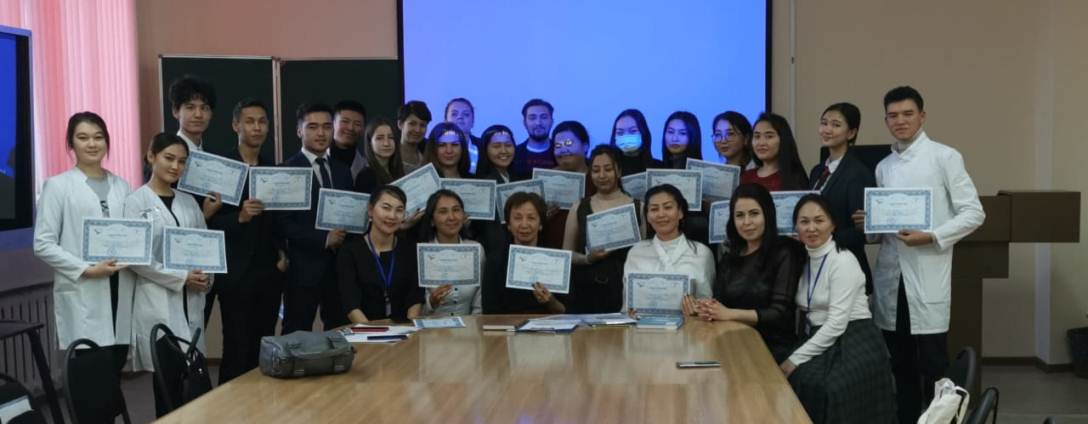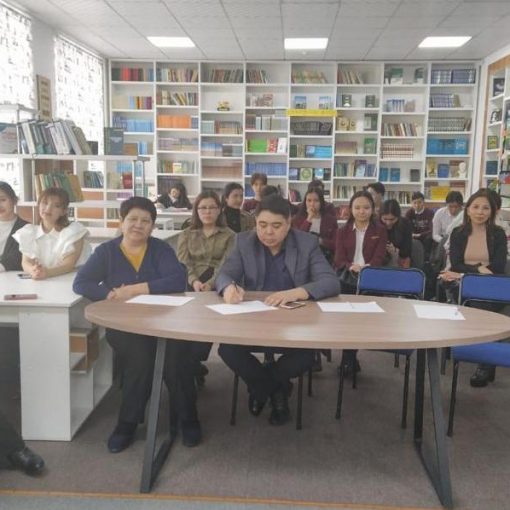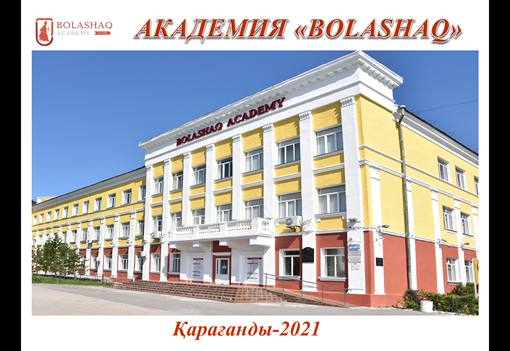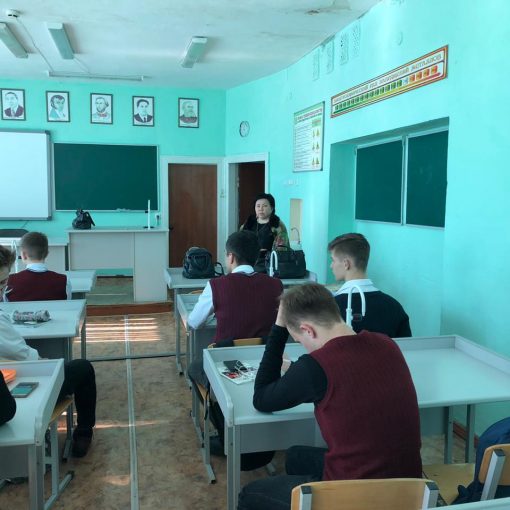Implementation of the national program “Rukhani Zhangyru”, the Law “On languages in the Republic of Kazakhstan” takes an important place in the work of the Department of Foreign Languages and Intercultural Communication.
The activity in this direction has an informal character. This academic year it is given a new impetus through cooperation with the language departments of higher education institutions in our region. The Chair of Foreign Languages of Karaganda Medical University initiated an interactive seminar on November 29 to discuss the content of the book by the British author Patricia Wallace “The Psychology of the Internet”. It belongs to the best textbooks on Internet psychology, is used in the top universities of the world and has already been published in Kazakh language in the framework of the state project “100 new textbooks” on the translation of masterpieces of world educational literature into the state language and transferred to the use of universities of the country. The library of Bolashaq Academy also received a sufficient amount of this textbook as a gift and put it on the shelves of the reading room and season ticket.

The 4th year students of the group IN-16-2 took part in this interesting event. They had an opportunity to read the textbook in Kazakh, compare it with the original language, express their opinion on its content. The choice of organizers on this book did not fall out by chance. As it is known, psychology of the Internet is today a topical theme, causes a public resonance. Statistics all over the world and Kazakhstan in particular speak about it. The formation of online personality on social networks and the psychology of online aggression, deep network dependence, huge exposure of children to the influence of the Internet, rules of behaviour on the Internet, safety on the Internet – this is the list of questions that the seminar participants tried to analyse and to answer.
Everyone noted not only the positive role of the Internet in our lives, but also the growing volume of virtual communication, the loss of often live contact and emotions. When asked whether humanity is moving in the right direction, and with it the Internet, do not forget about human values, morality, it was suggested that we should learn to combine the Internet and our values. Students of IJ and MK department presented to the attention of those present the materials of English and Russian press and statistics about the manifestation of gender relations and gender psychology on the Internet.

Presentations of the participants of the interactive seminar were accompanied by a discussion, the content of the textbook was supplemented by our realities, conducting an express survey. It turned out that many of them, over 50%, are not ready to “forget” about a cell phone for a few days, to do their homework without the help of the Internet in the reading room of the scientific library.
The final word was made by R. T. Dianova, senior lecturer of the Department of Pedagogy and Psychology of our Academy. Knowing how to find a compromise between real and virtual life, not to succumb to the influence of extremist organizations and religious sects, sometimes questioning Internet facts, thinking about health, not allowing ourselves to spend long hours online will allow us not to become hostages of the network.
What did the seminar give its participants? An opportunity to get acquainted with one of the best samples of the world educational literature in English and Kazakh, an opportunity to reflect on one’s own behavior in the modern cyberspace and, of course, an opportunity to communicate with students of other universities of the city, I bet, to ask a counter-question, to hear someone else’s opinion in one of the three languages of our state. And the future teachers will bring these thoughts to the school audience six months later.
B.K. Begakhmetova, associate professor of Foreign Languages and Intercultural Communications department






